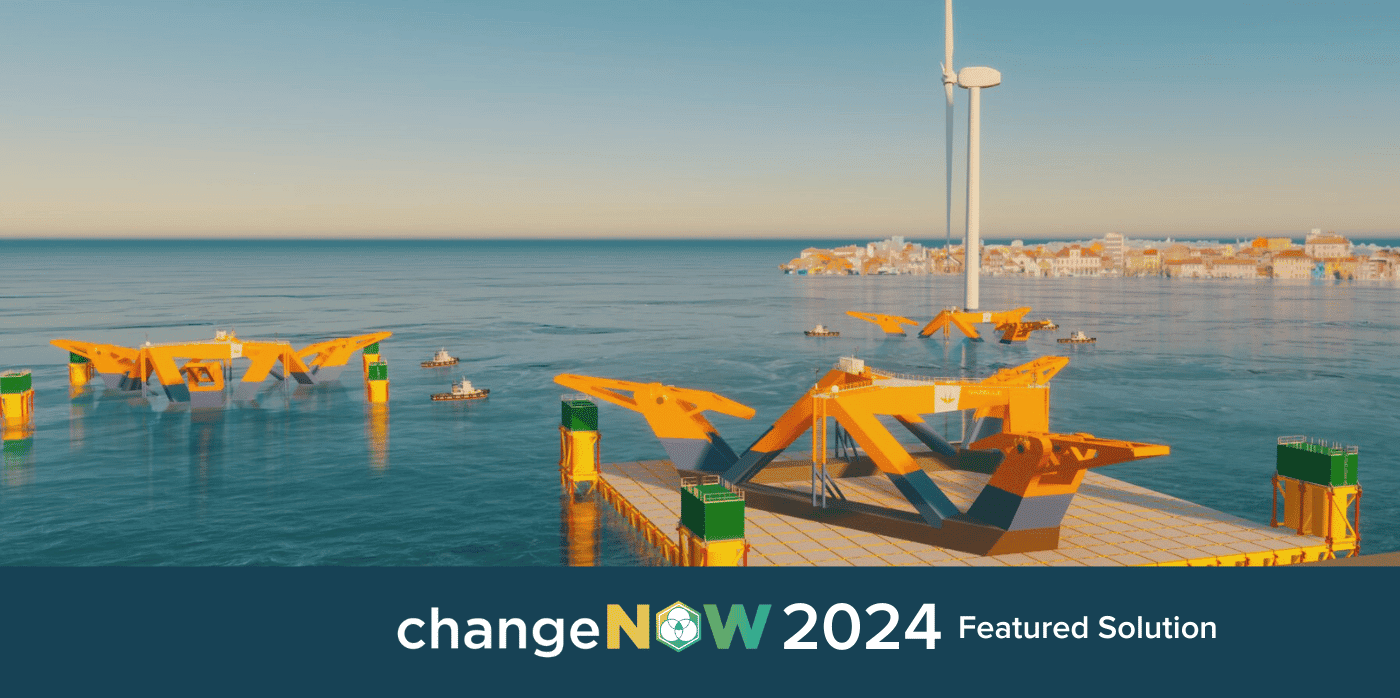Dynamic mooring: a game-changer in offshore wind

Spotted: Sharp cost rises meant that 2023 was a difficult year for offshore wind, with several planned offshore projects needing to be reevaluated or cancelled. But despite these challenges, innovation in the area continues apace. Floating turbines, for example, make things easier, especially in terms of reaching deeper waters and windier environments, but engineering platforms to be durable and efficient enough is tricky. This is where Gazelle Wind Power comes in.
The Irish company has designed and pioneered a modular, lightweight platform that can be deployed in far deeper waters than previously possible for offshore turbines. The three pivoting arms on the outside of the platform are anchored to the seabed, and these cables run over the tripodal arms to connect to a counterweight underneath the platform in the centre.
This innovative counterweight system enables dynamic mooring, meaning the platform can move up and down and side to side with the movement of the waves while minimising tilting. By reducing tilting, it keeps the pitch angle (the angle of the turbine blades) below five degrees, which cuts unnecessary wear and tear on the turbine.
Compared with current catenary mooring designs, whereby a platform is held in place by long lengths of rope anchored to the sea floor, Gazelle’s system achieves a 75 per cent reduction in required mooring length in water that is over 100 metres deep. What’s more, the platform reduces both the turbine’s carbon footprint and infrastructure requirements as it uses less steel and concrete than other conventional designs, making it much lighter, cheaper, and easier to assemble.
As we edge closer to net-zero deadlines, innovators are finding new ways to optimise green energy generation. Springwise has also spotted this company that is revolutionising wind turbine manufacturing with spiral welding as well as these alternative energy solar nanogrids that bring light to disaster-hit areas.
Written By: Archie Cox

